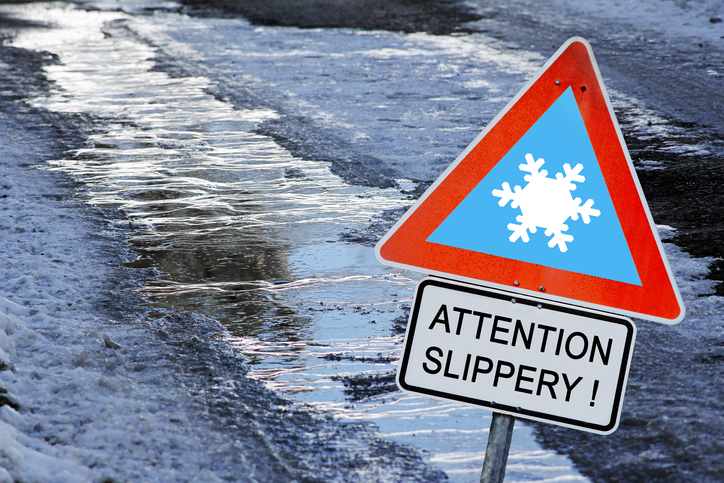Love it or hate it, winter is here in Central New York, and the season features many risks of orthopedic injuries resulting from traumatic accidents. Cold weather can make muscles and ligaments cold, tight, and brittle, increasing the propensity for injury. Winter sports present many dangers. But one of the greatest threats of wintertime is icy surfaces. Injuries from falling on ice are a prevalent seasonal issue. Every winter, SOS treats scores of patients with injuries from falling on ice, ranging from elderly persons to young winter sports athletes. Because slips, trips, and falls can seriously affect everyone, it’s essential to understand these seasonal risks.

Three Common Injuries from Falling on Ice
1. Wrist Breaks and Fractures
The tendency of many people when a slip on the ice occurs is to break their fall with their hands. This protects the head and face, but often results in broken wrists (distal radius fracture). The radius is the largest bone in the forearm, most often broken closest to the wrist. Bone diseases such as osteoporosis increase the likelihood of a distal radius fracture. Fractured wrists can usually be treated non-surgically, generally with splints and casts. In more serious or complex breaks, surgery may be required to correctly position and stabilize damaged bones.
2. Rotator Cuff Injuries and Shoulder Separation
If a slip on the ice results in a hard landing on the shoulder rather than the hands, a shoulder injury may occur, possibly to the rotator cuff muscles or bones. The collarbone and shoulder blade meet at the acromioclavicular joint; and the surrounding ligaments serve to stabilize this joint. When a direct impact happens, a shoulder separation or tear in the rotator cuff muscles might occur.
3. Herniated Spinal Discs
Landing on your back following a slip on the ice can result in spinal injuries. A common injury from falling flat on your back is a herniated disc of the spine. A traumatic impact can tear the outer part of the disk or cause the disc to be displaced, resulting in lower back or buttocks pain.
If you’ve experienced injuries from falling on ice, consult a medical professional. SOS PLUS After Hours Care, a walk-in orthopedic medical clinic that treats patients of all ages with acute orthopedic conditions requiring immediate attention, at 5719 Widewaters Parkway in Dewitt, is available.